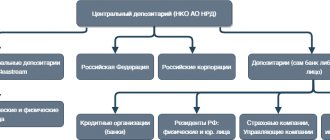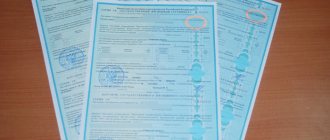Enforced debt collection is implemented using various legal mechanisms. Bailiffs not only try to determine the real income of the debtor, seize accounts and vehicles, but also search for other property belonging to him, including real estate. In 2021, foreclosure on the debtor's only home is almost never carried out, since such an action would deprive the citizen of the right to housing. However, there is an exception to this rule.
The procedure for foreclosure on real estate
If the debt is not repaid, the creditor may file a lawsuit (or apply for a court order). After the decision is made, he receives a writ of execution and submits it to the bailiff service at the location of the debtor in order to collect the debt forcibly.
The bailiff issues a resolution to initiate enforcement proceedings on the loan. The debtor will have a period of five days to voluntarily fulfill his obligation. If this is not done, the forced collection procedure begins.
To collect funds from the debtor, cash accounts are primarily used. If they are absent or there is insufficient money for them, the FSSP employee begins a search for other property, through which it is possible to ensure payments to the creditor.
The bailiff forecloses on real estate only if it is impossible to obtain compensation from other property. Article 69 of Federal Law No. 229 “On Enforcement Proceedings” establishes that such a procedure represents a direct seizure and subsequent sale of objects.
The debtor must provide the bailiff with all information about the real estate objects he owns. In practice, this rule is practically not implemented, so the contractor, to obtain the necessary information, sends requests to the tax authority, as well as to Rosreestr. After the answer, it becomes obvious what real estate the debtor owns.
Collection is made in the following order:
- search for property through sending inquiries . The bailiff needs to determine what property the citizen actually has, what can be used to pay off the debt, and what cannot be sold;
- seizure of identified property . This measure is necessary to ensure that the debtor does not sell the objects and does not hide the income received from the bailiff. The seizure of real estate prohibits any transactions with it. The restrictive measure is registered in Rosreestr and transactions are simply not carried out, since the system does not allow this;
- putting up real estate (property) for auction . Auctions allow anyone to purchase property. In practice, objects are sold at slightly lower prices than they actually cost on the market.
Before a building, structure or site is put up for auction, it will be assessed. If the object is not sold immediately, then the price for the next stage of the auction is reduced. If the bidding is not successful, then in the end the claimant may be asked to take ownership of the object to pay off the debt, at a minimum price.
Link to document: Federal Law No. 229-FZ of October 2, 2007 “On Enforcement Proceedings”
If the debtor's bankruptcy was initiated by the bank
An alternative option is to recognize the insolvency of an individual. The bank has the right to apply for recognition of the borrower’s bankruptcy if:
- the amount of overdue obligations is 500 thousand rubles or more;
- The person did not pay the loan for more than three months.
If you only own a single home, do not wait to file for bankruptcy. The bank will not go to court for a simple reason - it is not profitable for it, since it will have to pay for the procedure without having any guarantees that it will be possible to recover anything.
But if you have an overdue mortgage, the bank can file its claims in court. He will receive the status of a secured creditor
, and the money from the sale of housing (80%) will be transferred to his account.
Also, a bankruptcy petition will be filed if you own several real estate properties and bank accounts. In this case, creditors rely on the sale of property, due to which they will be able to receive repayment of the debt.
Advice from experienced single-family home lawyers can be obtained here. Contact us online or by phone. We will tell you in detail what you risk if you are late and will help you find a profitable solution.
Let us help you write off your debts
Our lawyer will call you in a few minutes and answer all your questions
FAQ
- Will a house be taken over in bankruptcy if it was purchased with a mortgage that was fully paid off a year ago?
If the obligations to the bank have been closed and the property has been released from collateral, then they will not be able to take the house. However, it is necessary that the house be the debtor’s only home. - Two years ago, the debtor gave his son an apartment. According to documents, this is the only housing. Will the deal be challenged in bankruptcy?
Hardly. If at that time the debtor had no accumulated debts, and the apartment was not purchased with credit money, then the financial manager has little chance of challenging such a transaction.
- Will my mortgage be repossessed if I'm two months late? Children are registered in the apartment
As a rule, banks go to court when at least six months of delay have passed. But in light of recent trends, some banks may seek foreclosure earlier. We advise you to pay at least small amounts on the loan to protect yourself. The presence of registered children in the apartment does not matter if the housing is under mortgage.
- What to do if they threaten to take away your mortgage? Only one year left to pay
Your mortgage will not be taken away if you have 5% of the loan amount left to pay. The bank will probably go to court, but the debtor should take an active position - this is the only way to achieve the desired decision and protect the apartment.
Can real estate always be foreclosed on?
The bailiff will not collect the debt through the sale of real estate if it is possible to obtain funds otherwise.
For example , if you have a bank account, securities, transport and their sufficient value to pay off obligations, the real estate may not be touched.
At the same time, foreclosure is not applied to the debtor’s only home (Article 446 of the Code of Civil Procedure of the Russian Federation). So, if housing is used for the residence of the debtor himself, as well as his family, then its seizure is a violation of the right to housing, that is, a violation of constitutional law and legal norms, which is unacceptable.
The land plot on which the debtor’s only residence is located is also not subject to recovery. This is due to the fact that the land always follows the fate of the structure (Article 552 of the Civil Code of the Russian Federation, Article 35 of the Land Code of the Russian Federation).
In fact, non-residential real estate can always be sold within the framework of enforcement proceedings, but residential real estate - only when it is not the only one for the debtor and his family. However, there is an exception to this rule.
Download for viewing and printing:
• Article 446 of the Code of Civil Procedure of the Russian Federation
• Article 552 of the Civil Code of the Russian Federation
• Article 35 of the Land Code of the Russian Federation
Is it possible to actually evict a home due to debts?
Most defaulters are concerned about whether they can repossess their apartment for debts. In particular, if it is the only home for the debtor. The answer is simple - the seizure of an apartment for debt is carried out only when the debtor has accumulated an incredible amount. However, even if the amount is excessively large, withdrawal is carried out in extreme circumstances.
Actual eviction from an apartment for debt is unrealistic:
- if the apartment is one dwelling of the debtor. In addition, the lack of other property other than one apartment;
- in the presence of persons under the age of majority who live with the borrower in a single apartment. Consequently, taking away is unrealistic even if the debt is equal to or exceeds the price of the apartment.
Attention
The actual eviction differs significantly from the arrest. Eviction establishes the seizure of an apartment for debt, after which its subsequent sale. The arrest is carried out completely differently.
Foreclosing on the only home
In some cases, it is still possible to foreclose on your only home. We are talking about a mortgage, that is, in those situations where an apartment (or a residential building) is the subject of pledge (clause 1 of Article 446 of the Code of Civil Procedure of the Russian Federation).
In case of bankruptcy of citizens, the situation is similar. The Supreme Court of the Russian Federation confirmed this position and indicated that foreclosure is possible on a single residence, even if it was not the subject of a pledge. You can read more about the signs of bankruptcy of an individual in this article.
Previously, the debtor could sell other real estate, leaving in ownership an object that was regarded as “luxury”. The courts of previous instances considered that it was impossible to foreclose on such an object, but the Supreme Court assessed it differently and decided that only living space that is vital for the debtor’s residence is not subject to foreclosure. But a luxurious mansion cannot be classified as such an object, so it can be sold as part of debt collection, with the provision of a minimum living space to the debtor.
What property will the bailiffs seize?
First of all, bailiffs are interested in objects with high liquidity. This means that they can be quickly sold and money received, which will then be used to pay off debts to the creditor. Such objects include cars and other vehicles, residential and non-residential real estate. Accounts and cash are also seized, and in some cases, precious metals and products.
Such situations are rare, so we have collected practical ways to avoid paying bailiffs.
Fact!
Only property that is proportionate to the debt can be seized. This means that the value of the seized property cannot exceed the amount of the recovery.
Practical features and problems
Quite often, the debtor’s only housing is an object that clearly exceeds his needs. For example, a person with a debt of two million rubles lives in a private house in the city center with an area of 200 square meters and a cost of 20 million rubles. Obviously, such real estate is more than the minimum a person needs to live.
In this case, the house clearly exceeds the value of the existing debt. The amount from its sale would be enough for the debtor to purchase other housing and to pay the creditor. But the possibility of selling the property and purchasing other housing is not yet possible in practice.
Firstly , in municipalities there is often simply no available housing stock. At the time of sale of housing and before purchasing a new one, the debtor and his family members must live somewhere. The solution could be the provision of a municipal apartment, but they are not available as such, at least in the public domain.
Secondly , there is simply no clear legislative mechanism for such actions. It is not yet clear what the difference in the cost of existing housing and the one needed for living should be to implement the procedure, how to take into account the area of residence, infrastructure, cadastral value and other parameters.
However, the sale of a single residence at auction is permitted if it is the subject of a pledge. And here a certain contradiction arises. On the one hand, the right to housing is also violated, but on the other, the pledge agreement is a voluntary transaction, the conditions of which must be fulfilled.
How to challenge foreclosure on your only home
If foreclosure is carried out on housing, which is actually the only one for the debtor, you need to act depending on the circumstances. So, if the procedure was initiated by a bailiff, then the procedure is as follows :
- obtain a resolution to foreclose on property. The bailiff will send it by mail to the debtor after delivery. If the document has not been received, you can apply for it in person or apply for issue by mail;
- study the text of the resolution;
- prepare the text of the complaint. It is not recommended to write too long complaints; it is best to use a business style and present your arguments as briefly as possible;
- send a complaint against the actions of the bailiff to the court, a higher authority or the prosecutor's office.
The complaint must indicate that the foreclosure is illegal and the debtor does not have any other real estate. If the object is the subject of a pledge agreement, it should be indicated that the debtor has other property sufficient to fulfill the obligation. Otherwise, the complaint may not bring the desired result.
Download the application to appeal the bailiff's decision (sample/form)
The creditor can also file an application for foreclosure in court, as part of a lawsuit. Most often, such a claim is prepared with a simultaneous demand for collection of the debt amount, but can be filed separately.
The defendant has the right to file an objection to the statement of claim, present his arguments and evidence. It is not recommended to ignore the court, as this will not bring the desired result. Ultimately, the court will make a decision even if there is no defendant.
Legal assistance in preparing an objection/statement >>
The debtor can challenge the cost of assessing the property that is planned to be sold. To do this, it is necessary to conduct an independent assessment and file a corresponding application with the court. If necessary, an independent examination will be appointed.
Let's sum it up
The only housing, as a rule, cannot be the subject of foreclosure: it is not sold at auction to satisfy the needs of the creditor, since this would violate the citizen’s constitutional right to housing. However, if such housing is the subject of a pledge, or the court considers that its area exceeds the minimum required for living, then in such cases the sale is allowed. In other cases, real estate is used as part of enforcement proceedings in accordance with the general procedure.
Read: Can a creditor challenge a sale of property by a debtor?






